There’s something big happening in the world of work. While it isn’t new by any means, it has recently exploded into the limelight, shaking up how businesses operate and forcing leaders to rethink the very fabric of their organizational culture. If you guessed the answer is artificial intelligence, you’re right.
AI is undeniably changing how we work. But instead of being open to its possibilities, fear is the common sentiment pervading many organizations—fear of displacement, fear of the unknown, and, perhaps most significantly, fear of failure in the face of revolutionary change. Recent research shows that more than 75% of respondents are concerned that AI adoption will lead to a loss of jobs. So if people fear losing their jobs to AI, why would they embrace it?
Rather than giving in to this fear, I think there’s a better solution—one that starts in HR. If leaders in this field become the first to adopt AI in their organizations, they can lead the entire workforce through this era of transformation with confidence.
It’s About the Little Things
AI’s spotlight in the corporate world often illuminates the technology’s most groundbreaking and disruptive capabilities. It’s painted a picture where hyperproductive algorithms overshadow the human element of work. This grandiose view can understandably be intimidating, which is why many approach AI with hesitation. But we need to recognize that artificial intelligence’s strength is in augmenting human capabilities, streamlining processes, and enriching the workplace experience in subtle, yet profoundly impactful ways.
The real value of AI is its ability to handle tasks that, while necessary, can be mundane and time-consuming. At my organization, for example, AI is being used to enhance efficiency across the board. Corporate functions and frontline employees alike utilize automation for small tasks like email sorting and responses, thread summarization in communications, swift comparisons in datasets, and meticulous recording of meeting notes.
In HR, this technology could be used to automate administrative duties like writing emails, parsing résumés for key skills, or even answering common employee inquiries through intelligent chatbots. This shift would then allow you to spend more time on personal interactions, strategy, and nurturing a vibrant workplace culture—the core elements that truly make a difference in an organization’s success.
Overcoming Resistance Won’t Be Easy
Much like rolling out any new initiative, you’ll likely encounter some resistance to adopting AI. So your role in this transformation will be leading through education, transparency, and engagement. By demystifying AI and providing clear, accessible information on how it will be used and the benefits it brings, you can alleviate fears and build enthusiasm among employees. This might involve organizing workshops, training sessions, or demo days where employees can see AI in action and understand how it will support their work.
When people feel they have a say in the change, resistance begins to wane. Plus, it’s been shown that an employer’s transparency around AI matters. According to a 2023 UKG study, while “63% of employees say AI would increase job satisfaction and engagement,” more than half don’t know how their companies are actually using it.
I’ve seen the positive impact of transparency firsthand. In my company’s efforts to overcome resistance, we’ve incorporated showcasing AI’s capabilities live during all-hands meetings, particularly with the C-suite leading the demonstration. By employing AI tools in real time, our leaders get the opportunity to talk about the technology’s potential and visibly integrate it into their workflows. This helps break down barriers of skepticism and fear because employees watch how AI can augment their experience.
The next best thing you can do is lead by example. Demonstrating successful AI use cases within HR can inspire confidence and support across the organization. You might showcase how AI-driven analytics can improve operations, virtual assistants can provide resources, and machine learning algorithms can predict trends. When other departments see the tangible benefits you’ve seen—such as improved efficiency, better decision-making, and enhanced employee satisfaction—they’ll be more likely to embrace AI within their own teams.
The Promise of AI: A More Human Workplace
Employees must understand that, by taking over routine and repetitive tasks, AI will actually allow us to focus more on what makes us uniquely human: creativity, empathy, and strategic insight. As HR leaders, our role in this era of transformation is to do more than simply integrate AI into organizational processes. We need to ensure that this technological advancement serves to enhance the human experience at work.
AI offers the promise of a more inclusive, equitable, and engaging workplace. By leading the charge on integration, you can help realize this promise. This will turn potential disruptions into opportunities for growth, innovation, and deeper human connection.
This is the moment for shaping a future where technology and humanity coexist in harmony, each enhancing the other. The journey starts now, and HR is at the helm.

